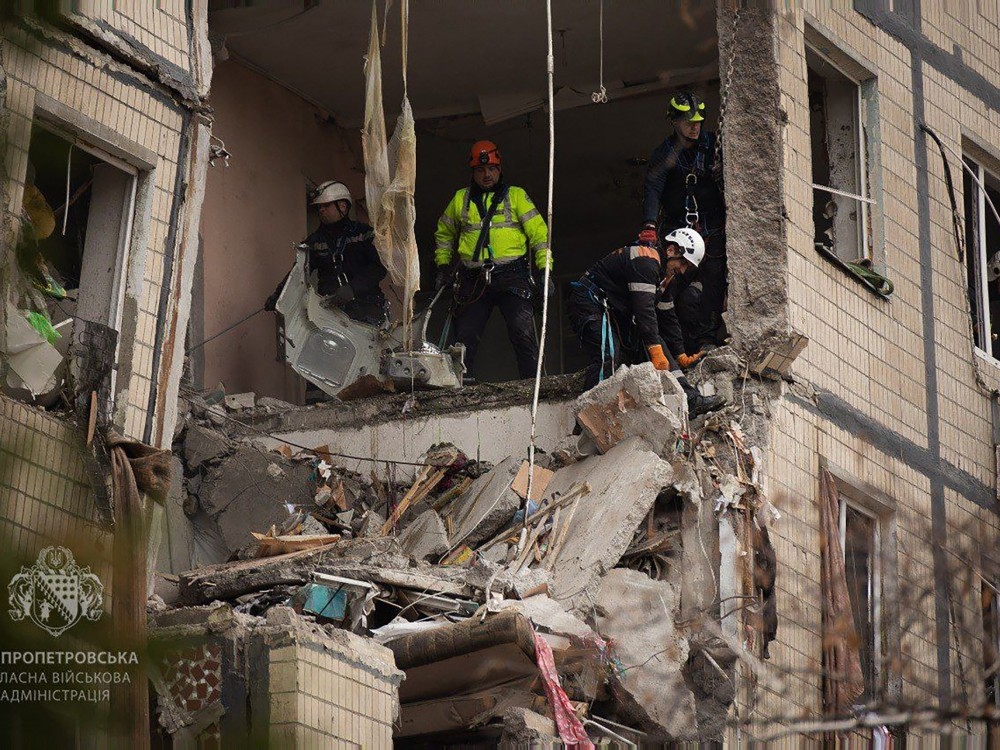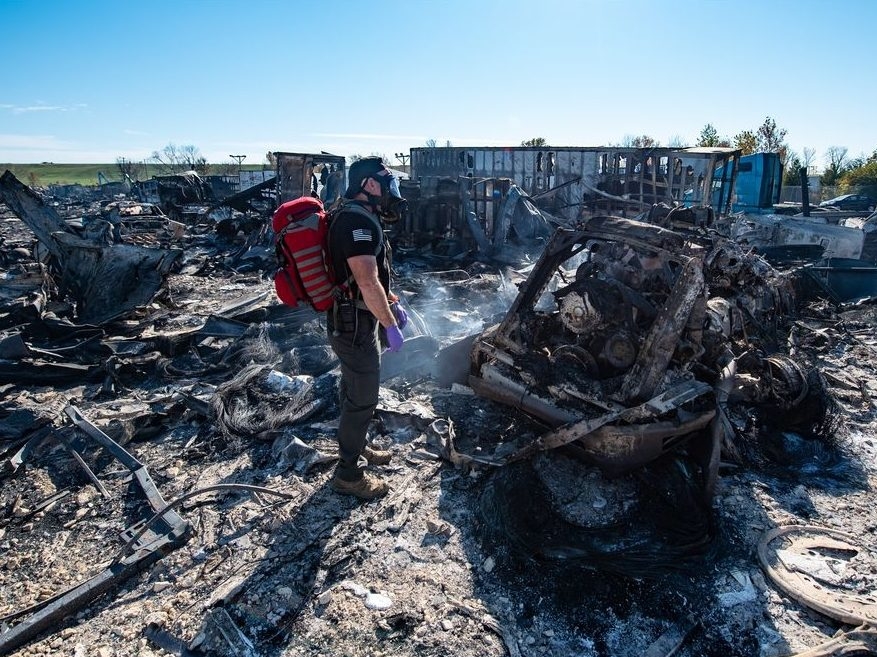A pre-dawn darkness shattered over eastern Ukraine as a Russian drone struck an apartment building, plunging residents from sleep into a nightmare. Four lives were extinguished – three in Dnipro, one in Kharkiv – and twelve more were wounded, a stark reminder of the relentless conflict gripping the nation.
The attack on Dnipro, a major city, was just one element of a massive Russian barrage targeting Ukraine’s vital power infrastructure. A worker at an energy company in Kharkiv also perished, adding to the growing toll of civilian casualties. Flames engulfed multiple apartments in the nine-story building, as rescuers desperately searched for survivors.
The scale of the assault was staggering: 458 drones and 45 missiles rained down across the country, including a barrage of 32 ballistic missiles. Ukrainian air defenses managed to intercept 406 drones and nine missiles, but 25 locations still bore the brunt of the attack. The immediate aftermath saw power outages ripple through several regions.

The fighting around the strategic city of Pokrovsk has intensified, becoming a focal point in a larger struggle for influence. Both Ukraine and Russia are keenly aware that battlefield successes could sway opinion in Washington, particularly with U.S. President Trump considering future support.
Adding another layer of tension, Russia announced it had begun preparations for a potential nuclear test, following statements from Trump that hinted at a possible resumption of U.S. atomic testing. This move escalates the already precarious geopolitical landscape and raises the specter of a dangerous arms race.
Russia’s relentless strikes continue to target Ukraine’s energy infrastructure, a pattern of attacks the Kremlin claims are focused solely on military and energy sites supporting Kyiv’s war effort. However, the reality on the ground paints a different picture, with civilian areas frequently caught in the crossfire.
Ukraine has responded with long-range drone strikes on Russian oil refineries, aiming to disrupt Moscow’s revenue stream and cripple its ability to fund the war. Russia, in turn, seeks to dismantle Ukraine’s power grid, leaving civilians without essential services in the depths of winter – a tactic Kyiv officials denounce as “weaponizing winter.”
Damage to major energy facilities around Kharkiv, Kyiv, and Poltava was reported, with thermal power plants operated by Centrenergo knocked offline. These facilities had previously been damaged and painstakingly restored, only to be targeted again, highlighting the cyclical nature of destruction and rebuilding.
In the southern Volgograd region, Russian forces claimed to have repelled a “massive” drone strike on energy facilities, though power outages were reported in parts of the area. Simultaneously, a drone strike in the Saratov region damaged an apartment building, wounding two people.
Ukrainian President Zelenskyy has vowed to cut off Russia’s oil revenue, particularly in Europe, following Hungary’s recent exemption from U.S. sanctions targeting Russian oil producers. He asserted that halting Russian oil sales is a matter of time, though details of how Kyiv intends to achieve this remain undisclosed.
Hungary, led by Prime Minister Orban, argues its reliance on Russian crude is unavoidable and that alternatives would cripple its economy. This stance has drawn criticism, as most of the EU has significantly reduced or eliminated its dependence on Russian fossil fuels since the full-scale invasion began.
The battle for Pokrovsk, situated along the eastern front line, is seen as crucial not only for its strategic importance but also for its potential impact on international perceptions. Both sides claim to be encircling enemy forces, but independent verification remains elusive.
In a positive development, Ukraine’s Zaporizhzhia Nuclear Power Plant, currently under Russian control, has been reconnected to the power grid via a second transmission line. This is vital for cooling the plant’s reactors and preventing a potential nuclear disaster, as the facility has repeatedly lost external power since the start of the conflict.





